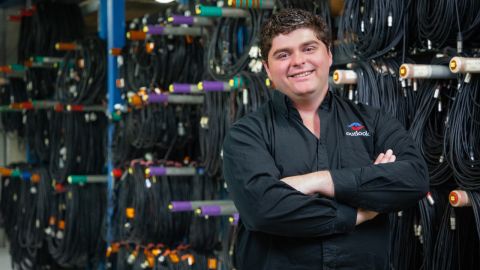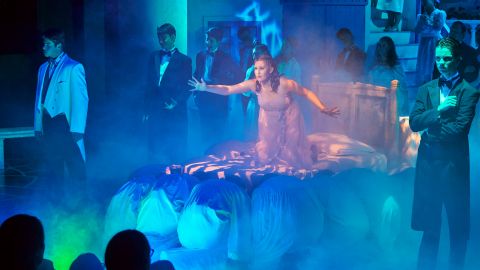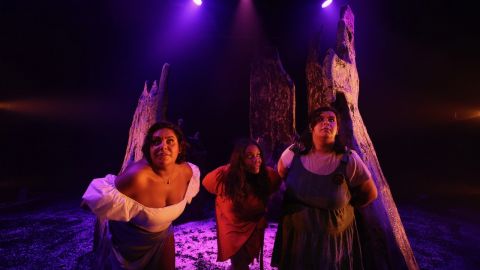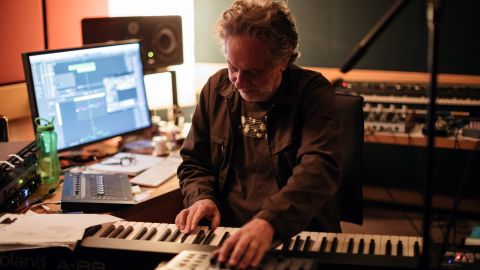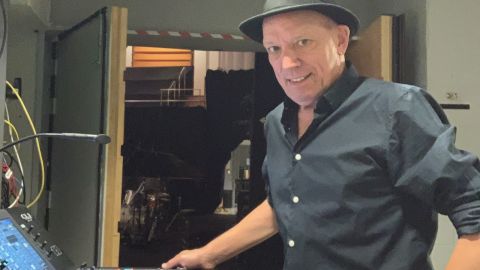Back of Beyond Company Theatre Production…
One of the most rewarding areas of any stage production can be working in the sound and light team. After decades of working in amateur theatre, theatre producer (and publisher of plays and musicals) Gail Denver (who also volunteers for the Maleny Players drama group) has produced many different types of productions and knows that a good director/production team will pay equal attention to what goes on off stage as on. She advises that a production meeting that includes the light and sound techies should be held as soon as possible after casting – this way, their ideas can be discussed and developed once a director has outlined their view of the production. “Seamless sound and light cues are only going to happen with good rehearsal time. If an audience does not regard what’s gone on in front of them as separate items, this means your production is successful and the techies have done their jobs well! Conversely, there’s nothing more ruinous than the awfulness of a long wait for a sound effect to begin, the gun that goes off before it’s out of the holster or a full fade to black-outs mid speech…!
“My work with young people, in schools and drama groups, in this field has been particularly enjoyable. There is plenty of interest on offer with sound and lights and I’ve seen many students who would never dream of going on stage, in any capacity, being totally absorbed, sitting at a lighting or sound desk”.
Small amateur groups can do a lot to improve their results, even without the budgets and better equipment of the bigger companies. If you don’t have your own equipment, hiring can be costly and will dictate to some degree when your techies will be able to fully rehearse with the cast. But get them along to rehearsals from the start, to plan ahead and become familiar with the production script, cues and the director’s thoughts. Especially if you’re rehearsing in a venue that’s not where you’ll be performing. The actors can start working with the music and SFX cues whilst blocking and have much more productive rehearsals via any old CD player at every rehearsal till your production equipment has arrived. There are plenty of music and sound FX downloadable from the internet, ready to burn to CD. If using, don’t leave the mike work till the last minute. Drama groups can often get regional funding for hosting technical workshops, employing professionals to further their own members’ skills. The local high schools often have senior students in the performing arts courses who might like to assist you and learn from you for further productions, as well as often being a source of cheaper equipment locally. Church groups and convention centres also have PA and lighting equipment and operators.
Gail Denver is editor at Maverick Musicals and Plays: www.mavmuse.com

